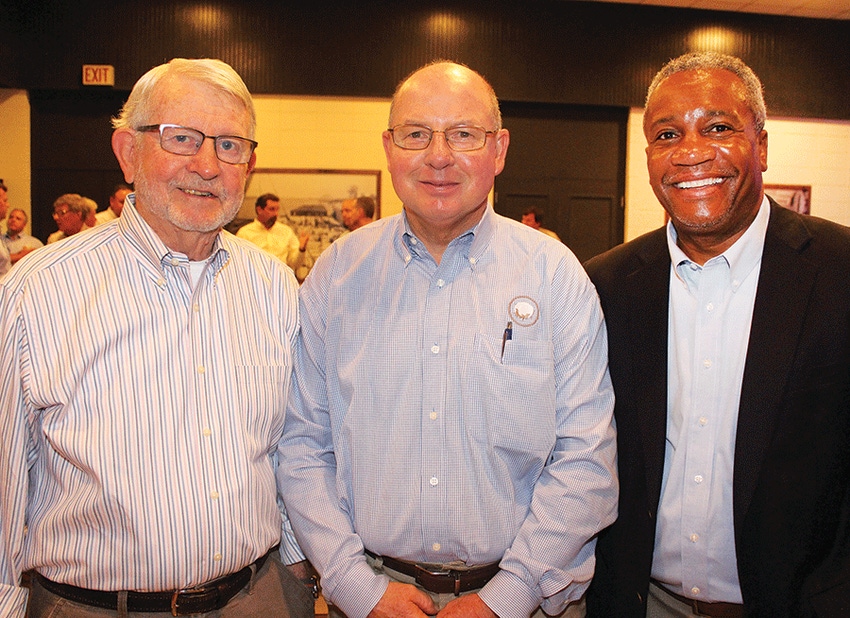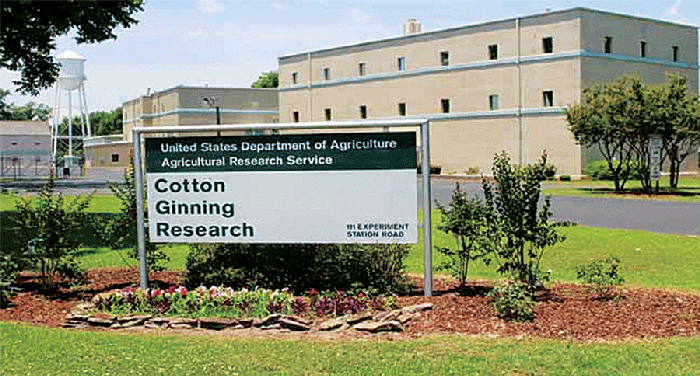
Over the past two years, the USDA Agricultural Research Service Cotton Ginning Laboratory at Stoneville, Miss., has received approval of an additional $1 million in badly needed federal funding to support cotton ginning research efforts.
That’s the good news.
The bad news, says Archie Tucker, USDA/ARS Southeast regional director, “is that the ginning lab continues to be on the presidential closure list, and as long as it’s on that list, we can’t recruit and hire permanent full-time employees. That’s a real challenge for us. We’re doing all we can to get the lab off the closures list,” he said at the annual joint meeting of the Southern Cotton Ginners Association and the Delta Council Ginning and Cotton Quality Improvement Committee. “There’s language in the federal budget bill that Congress doesn’t support the proposed termination, but until the bill gets passed with that language intact, our hands are tied.
“Thanks to [retired] Sen. Thad Cochran, R-Miss., and his staff, and the support of the ginning industry, the facility received a $500,000 funding increase in 2017, and in 2018 it was approved for another $500,000 increase.”
While awaiting action on getting the lab off the closures list, Tucker says, “We’re working hard to find post-doctoral scholars to come in and help us with research. We’re also working with Texas A&M on cooperative agreements for several cotton ginning research projects, and we’re working with researchers at the Stoneville lab on cooperative research agreements focusing on contamination.
“We also are collaborating with the Las Cruces, N.M., ginning lab on lint cleaning comparison studies, and with the Southern Regional Research Center on comparison studies of cotton varieties and on cottonseed quality. So, even though we aren’t able to fill any permanent positions at the Stoneville lab, we do have these collaborative projects looking ginning industry priorities.”
"The Stoneville cotton ginning laboratory has been vitally important to the fiber quality and economics of cotton production and processing in all upland cotton-growing areas, especially the Mid-South and Southeastern U.S. (Memphis territory growths)."
Over the last couple of years, Tucker says, “We’ve renovated our fiber quality lab to the tune of about $250,000, and have acquired other equipment, including an electric generator, lint cleaner, gin console, $280,000 of HVI equipment, and other equipment. Once we’re able to hire staff, we’ll have a lab that’s first rate, with the best instrumentation available.
“We’ll continue to be aggressive in working to get post-doctoral students in place, so that once the facility is off the closures list and we get the OK to start hiring, they can move right into permanent positions. These will be great opportunities for post-docs who want to pursue cotton research.”
Tim Price, executive vice president of the Southern Cotton Ginners Association, commented to Tucker: “We appreciate very much your outreach on behalf of the ginning industry, but we also want to make you aware of a major concern in our sector — we don’t want to lose funding or emphasis for post-harvest research. We can produce the best cotton crop in the world, but if we can’t get the quality and quantity the market wants after the cotton leaves the field, we’re losing ground. Post-harvest research makes production research work – you can’t have one without the other.”
In a Delta Council resolution, adopted at the committee meeting, there is language addressing the post-harvest issue. “In recognition of the pressing changes in cottonseed breeding, production, harvesting, and end use technologies that are rapidly advancing, Delta Council views that USDA/ARS must place a higher priority on post-harvest technology, and specifically, additional resources at the Stoneville-based Cotton Ginning Laboratory, in order for the full production system of Mid-South/Southeast cotton to move to the marketplace without being discounted due to the lack of equivalent advancements in ginning technology.
“In this regard, Delta Council urges the National Cotton Council, Southern Cotton Ginners Association, and other Mid-South/Southeastern certified producer organizations to join with Delta Council in a meeting with the national program staff of USDA/ARS to address these critical issues with a sense of urgency.”
Noting that the Stoneville facility “has been vitally important to the fiber quality and economics of cotton production and processing in all upland cotton-growing areas, especially the 10 states in the Mid-South and Southeastern U.S. (Memphis territory growths),” the resolution says advances in technology for cotton ginning that have been developed at the lab “have enabled gins to remain compliant with EPA air quality standards, while at the same time constantly improving fiber quality.
“Delta Council urges the laboratory to continue to emphasize the study of all aspects of reducing costs and increasing marketable cotton lint that possesses characteristics that respond to prevailing market signals. Special attention should continue to be focused on the behavior and quality of newer and higher-yielding cotton varieties at the point of ginning. Contamination issues concern Delta Council, and we wish for the laboratory to work with the Extension Service to address this persistent problem through education and outreach on the farm and at the gin. USDA should also place emphasis on cottonseed research, aimed at ensuring the future market share in the oil and meal marketplace.”
The resolution praised Sen. Cochran “for his longstanding support of the laboratory in the fiscal years 2017 and 2018 appropriations process,” and expressed “regret that the executive branch has not placed priority on the base funding for the laboratory since 2007. Delta Council requests that the Mississippi congressional delegation continue to take the necessary steps to increase funding at the laboratory.”
The resolution also expressed “gratitude for the actions taken by Congress in fiscal years 2017 and 2018 to increase funding for the laboratory — the funds made available to increase cotton ginning research and quality assurance will contribute toward the world price competitiveness and market share of quality cotton” grown in the Mid-South and Southeast states of the Memphis territory.
About the Author(s)
You May Also Like




